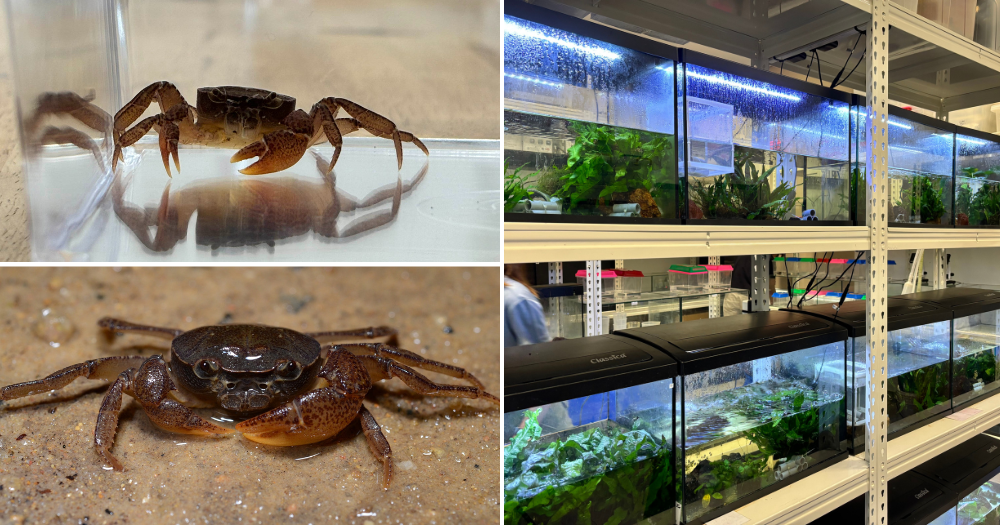The National Parks Board (NParks) has successfully bred in captivity and released three species of freshwater crabs that are endemic to Singapore.
This means that the three species — the Johnson’s freshwater crab, Singapore freshwater crab and swamp forest crab — can only be found in Singapore and nowhere else in the world.
These efforts under NParks' Species Recovery Programme mark the successful ex-situ conservation of all of the country's endemic freshwater crab species, President Tharman Shanmugaratnam announced in a speech during the annual Festival of Biodiversity organised by NParks on May 25.
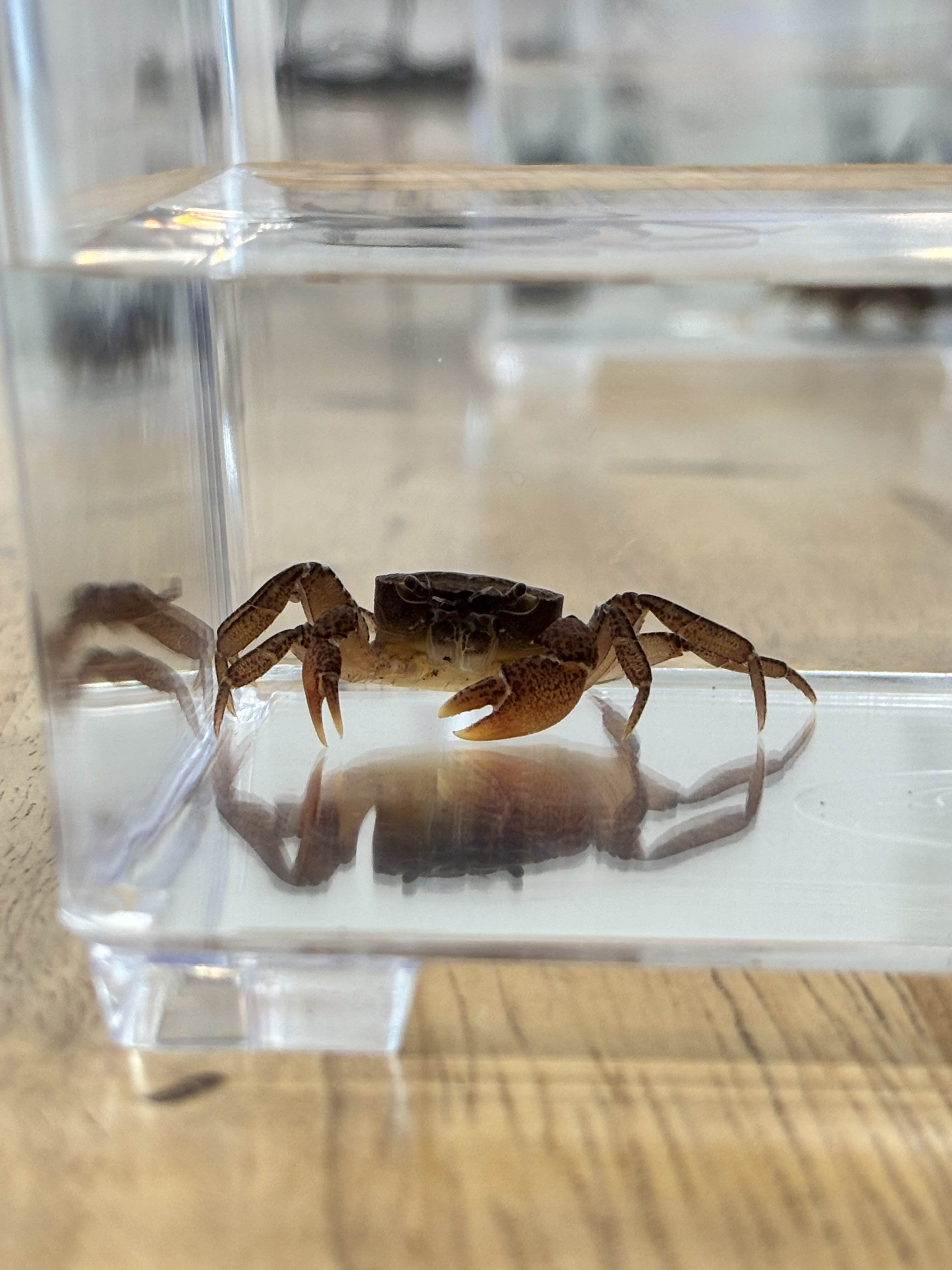 Photo by Ashley Tan
Photo by Ashley Tan
Bred in captivity
A total of 1,900 crabs across the three species have been bred and produced by NParks in captivity.
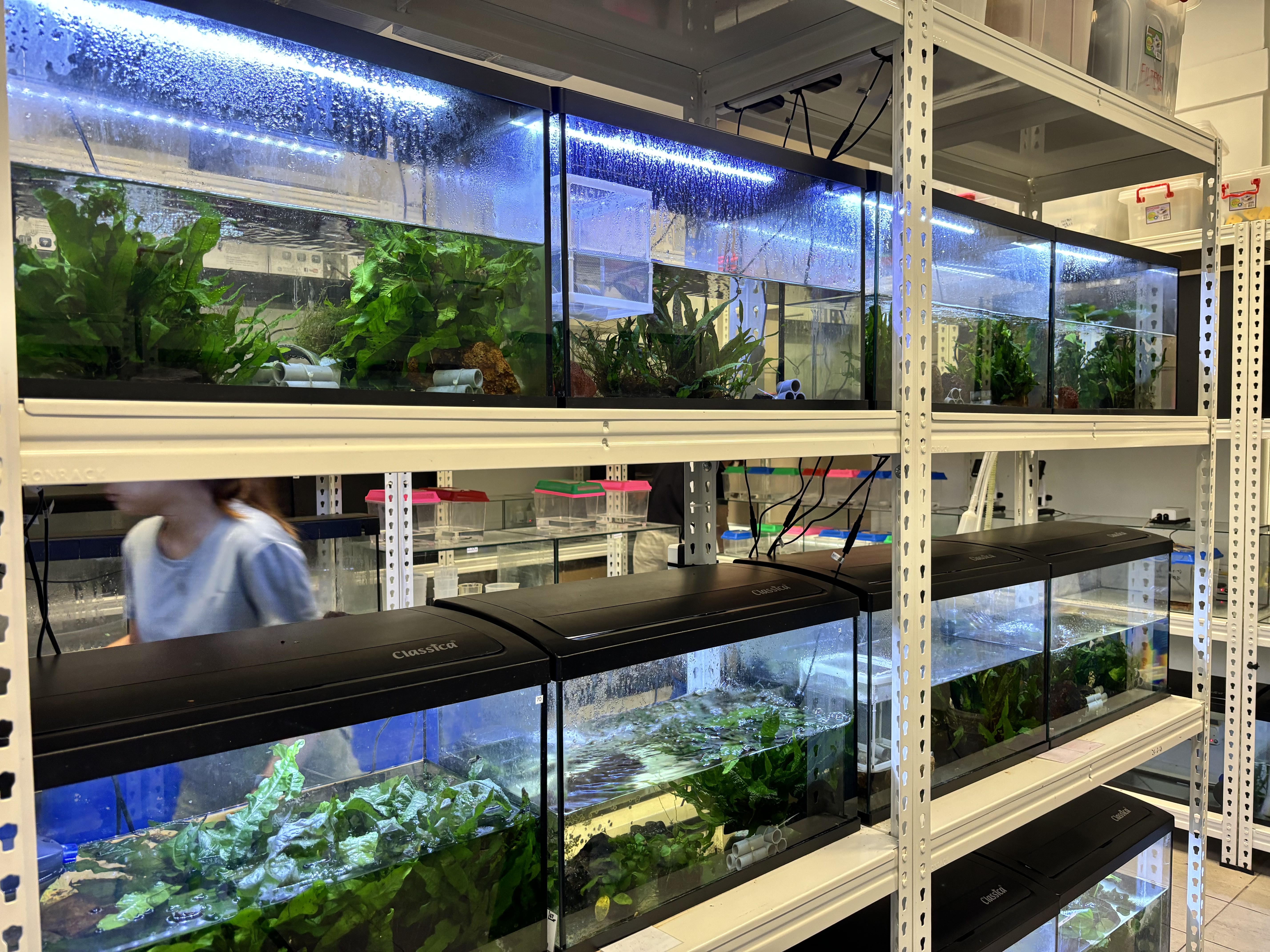 Photo by Ashley Tan
Photo by Ashley Tan
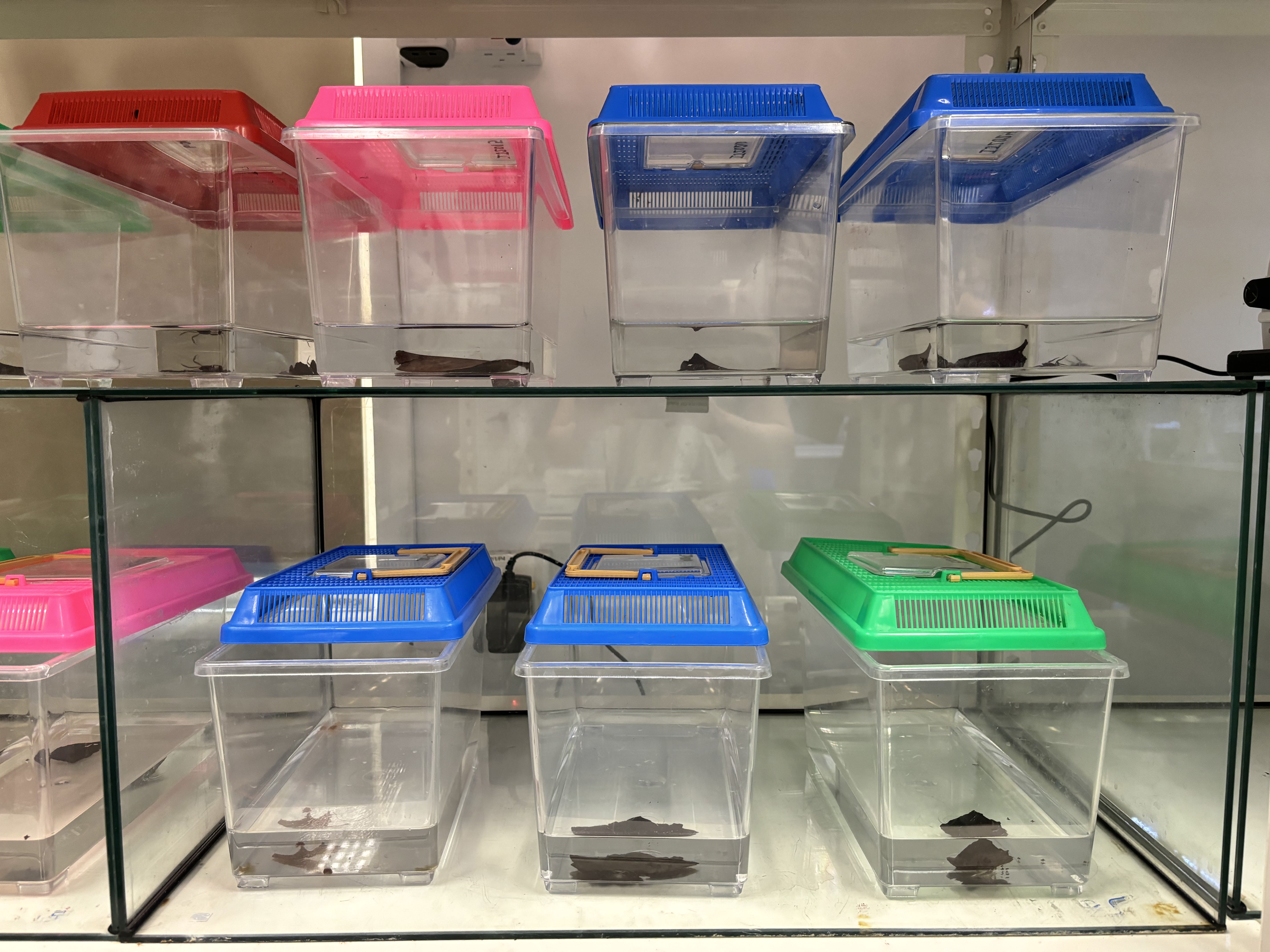 Photo by Ashley Tan
Photo by Ashley Tan
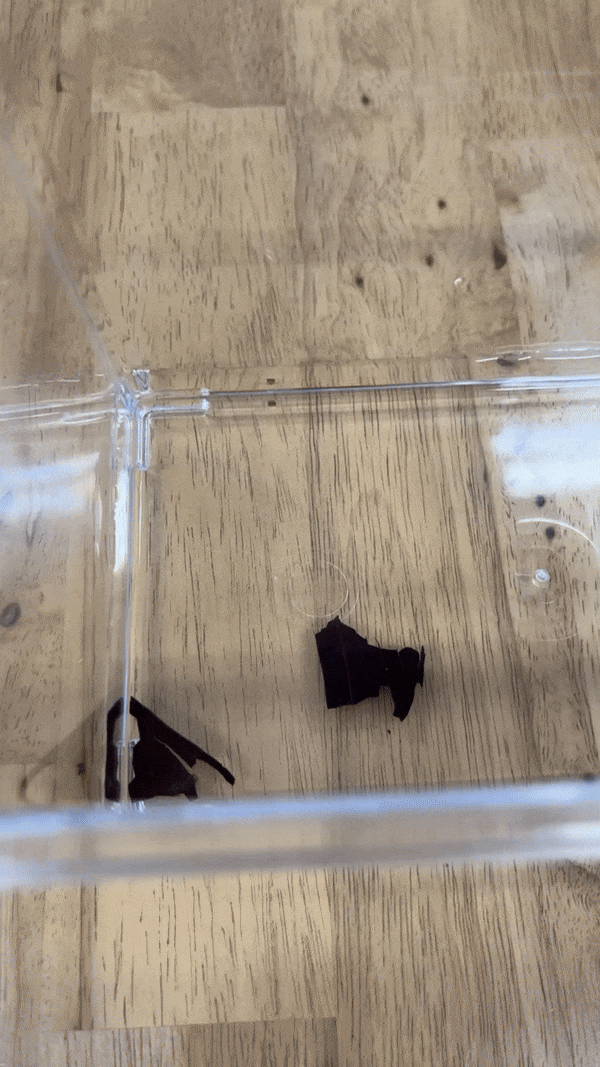 A crablet. Gif by Ashley Tan
A crablet. Gif by Ashley Tan
Some of these crabs across the three species have been released into the wild to boost natural populations.
Captive breeding efforts for the Singapore freshwater crab and the swamp forest crab, both of which are locally classified as "Endangered", commenced in 2018.
Singapore freshwater crab
The Singapore freshwater crab is restricted to only a few hill streams in Bukit Timah, Bukit Batok and Bukit Gombak.
NParks was able to breed first-generation offspring in 2018, and after numerous tries, over 100 second-generation offspring in 2023.
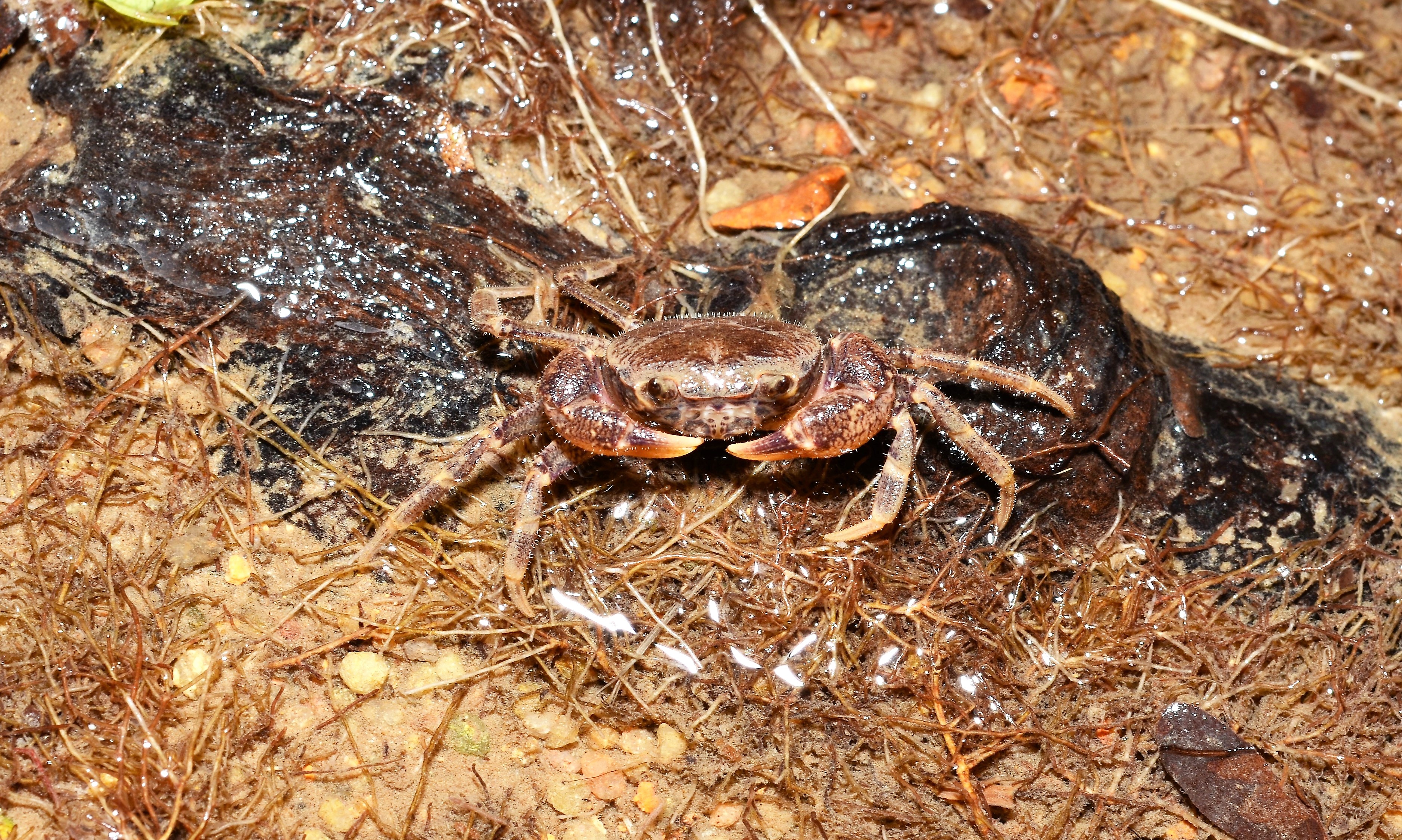 Photo by Daniel Ng via NParks
Photo by Daniel Ng via NParks
Swamp forest crab
This species can only be found in a small section of Nee Soon Swamp Forest.
Conservation efforts for this species involved long-term monitoring, research, translocation and captive breeding.
12 individuals from the swamp were collected in 2018, and in 2019, around 300 first-generation offspring were produced in captivity.
This marked the first successful attempt in the world to produce this species in an artificial environment, NParks shared in a press release.
Another 180 second-generation offspring were produced in 2022, 20 of which have been released into a stream at a nature park in Singapore.
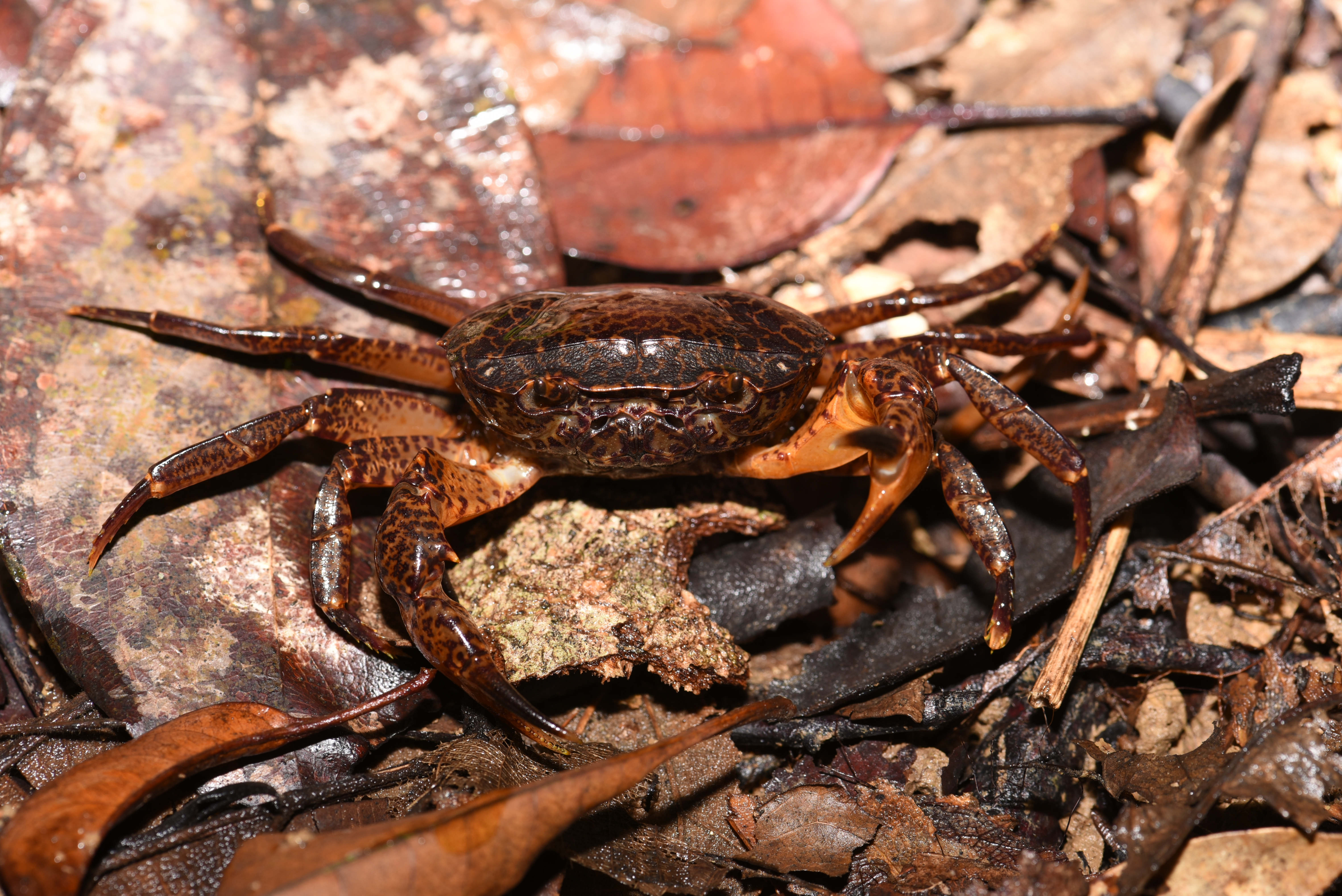 Photo by Daniel Ng via NParks
Photo by Daniel Ng via NParks
Johnson's freshwater crab
The Johnson's freshwater crab is classified as "Vulnerable" locally, and can only be found in Bukit Timah Nature Reserve and various parts of the Central Catchment Nature Reserve.
In 2023, over 300 first-generation crablets were produced in captivity.
More than half of these crablets have since been released into the wild.
Attempts to produce the next generation of crablets are ongoing, with the aim of releasing more in the future.
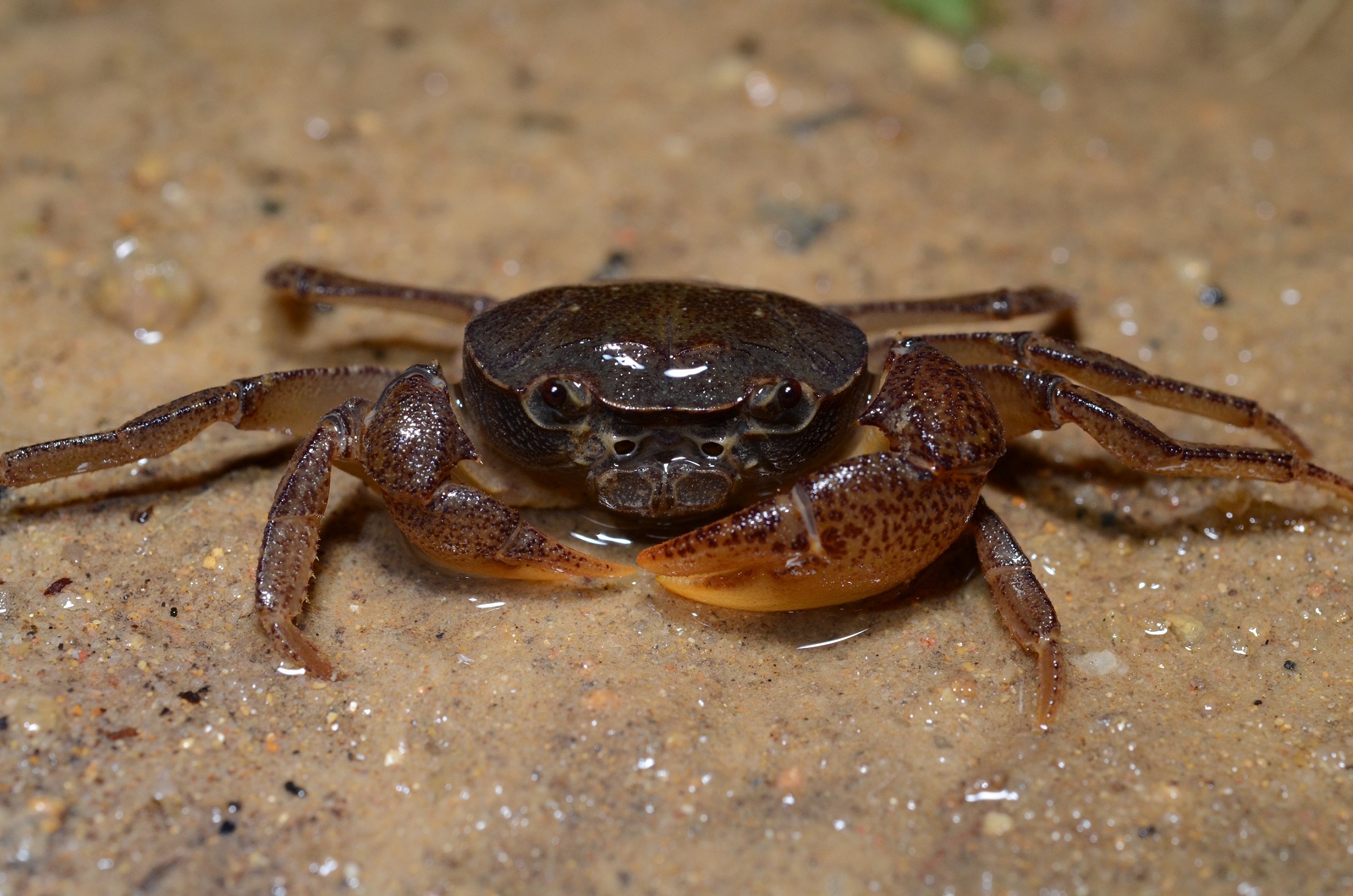 Photo by Daniel Ng via NParks
Photo by Daniel Ng via NParks
Species Recovery Programme
The NParks Species Recovery Programme aims to conserve Singapore's native flora and fauna, in particular those that are endemic, rare or threatened, through reintroduction, habitat enhancement and protection efforts.
The agency currently aims to include 100 plant and 60 animal species under the programme by 2030.
As of May 2024, there are over 80 plant and more than 40 animal species under the programme.
Other species NParks has bred and released include the muff river prawn, which is known to occur only in one stream in Singapore.
Its restricted distribution meant that it was in danger of local extirpation.
NParks has also propagated thousands of plant specimens and planted them in our parks and nature reserves to expand their distribution.
Third edition of the Singapore Red Data Book
On May 25, Tharman also announced the completion of the third edition of the Singapore Red Data Book.
Featuring over 9,400 species, more than three times the number of species in the previous edition, the book serves as an authoritative reference for the conservation status of Singapore's biodiversity.
In the book is information such as the scientific and common names of each species, its national conservation status, and description.
Unlike the second edition published in 2008, the third edition includes new assessments of species from taxonomic groups such as algae, fungi, poriferans (sponges), freshwater aquatic bugs, assassin bugs, marine insects, tanaids and marine fishes like sharks and rays.
Taxa like bees, beetles, cnidarians, echinoderms, flies, marine fishes, molluscs, moths, scleractinians, spiders and wasps also saw "substantial" numbers of species assessed for the first time.
The book will "serve as a key tool in guiding conservation strategies across Singapore," NParks stated.
You can purchase the book for S$50 at the Gardens Shops in the Singapore Botanic Gardens, as well as selected local bookstores.
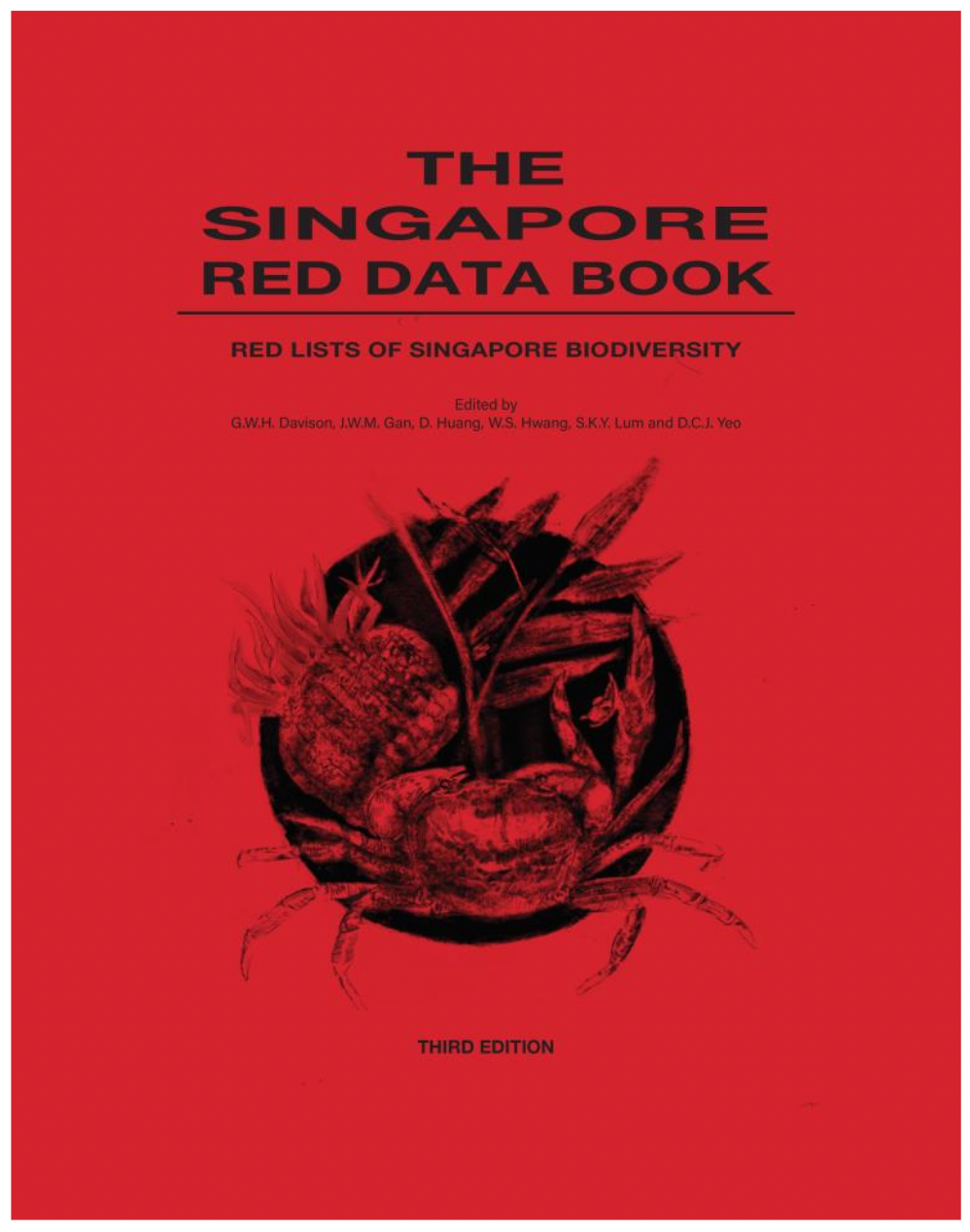 Photo from NParks
Photo from NParks
Revised Biodiversity Impact Assessment guidelines
NParks has also revised its Biodiversity Impact Assessment (BIA) guidelines.
The guidelines now include updates on conducting baseline studies for terrestrial and marine sites, as well as descriptions of new marine habitat types.
The BIA helps developers and industry practitioners assess the impact of development works on local flora and fauna in Environmental Impact Assessments.
"This will allow developers to have a better understanding of the biodiversity impact of their projects, especially for those in or near to sensitive areas such as Nature Reserves," NParks said.
Revisions to the BIA were made following engagements with environmental consultants, nature groups and academics.
Top photo from Daniel Ng via NParks and Ashley Tan
If you like what you read, follow us on Facebook, Instagram, Twitter and Telegram to get the latest updates.

